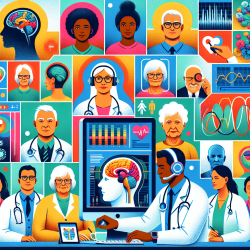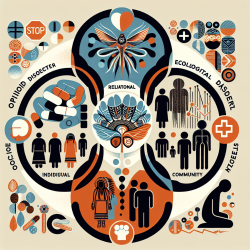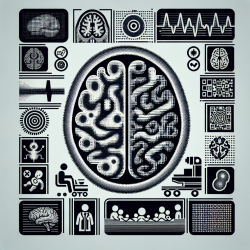The landscape of Alzheimer's disease (AD) research is undergoing a significant transformation with the integration of digital technologies. These innovations offer promising tools for early diagnosis, monitoring disease progression, and evaluating therapeutic responses. As a practitioner, understanding and implementing these technologies can enhance your skills and improve patient outcomes.
The Role of Digital Technologies
Recent research highlights the potential of wearable devices and passive sensors in capturing subtle changes in cognition and functional capacity long before dementia onset. These tools provide continuous, objective data that can refine clinical trials by improving recruitment, retention, and endpoint assessments.
Wearable Devices and Sensors
- Wearable Devices: Tools like accelerometers can track daily activities and detect changes in motion behavior, offering insights into cognitive health.
- Sensors: Passive sensors in homes can monitor behaviors such as sleep patterns, social activity, and medication adherence, providing valuable data on cognitive status.
Applications in Clinical Trials
The integration of these technologies into clinical trials is crucial. They not only enhance the accuracy of data collection but also reduce variability in cognitive assessments. This precision is vital for identifying meaningful changes in early-stage AD patients.
Challenges and Opportunities
The adoption of digital technologies presents challenges across scientific, ethical, and regulatory domains. Practitioners must navigate privacy concerns, data sharing policies, and regulatory requirements to effectively utilize these tools.
Navigating Ethical Concerns
- Privacy: Ensuring patient data confidentiality is paramount. Practitioners should be transparent about data usage and obtain informed consent from participants.
- User Experience: Tools should be user-friendly to encourage compliance among diverse populations.
The Future of Digital Biomarkers
The potential of digital biomarkers as secondary endpoints in clinical trials is being explored across various neurological disorders. These efforts highlight the importance of integrating digital tools with traditional assessments to provide comprehensive insights into disease progression.
Your Role as a Practitioner
As a practitioner, staying informed about these advancements is crucial. Attend conferences, engage with webinars, and network with peers to gain insights into implementing these technologies effectively. Encourage further research to explore new applications of digital tools in clinical settings.










